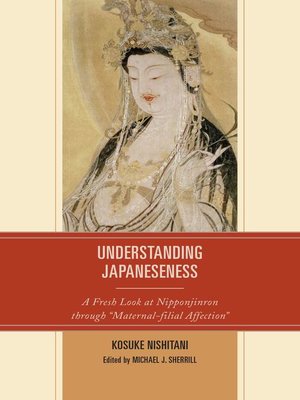Understanding Japaneseness
ebook ∣ A Fresh Look at Nipponjinron through "Maternal-filial Affection"
By Kosuke Nishitani

Sign up to save your library
With an OverDrive account, you can save your favorite libraries for at-a-glance information about availability. Find out more about OverDrive accounts.
Find this title in Libby, the library reading app by OverDrive.



Search for a digital library with this title
Title found at these libraries:
| Library Name | Distance |
|---|---|
| Loading... |
Japan, although a small country, is identified as perhaps the only civilization composed of just one nation. In spite of its many encounters with axial civilizations Japan has somehow preserved a unique sense of self. This enduring quality lends an air of mystery to Japanese culture that continues to draw the fascination of many. Such curiosity about the nature of Japan and its people has prompted the publication of many books that contribute to the academic genre known as "Nipponjinron."
This book makes a distinctly new contribution as a theological anthropology of Japaneseness by paying careful attention to the religious sensibilities that undergird Japanese behavior. The author draws on numerous seminal works of Nipponjinron to build a sturdy philosophical and historical platform. Through concrete examples, classic literature, historical analysis, and religious reflection, the author carefully and skillfully illuminates a new path to understanding Japaneseness by drawing the reader's attention to the lifeblood of Japanese behavior, "maternal-filial affection."
This book makes a distinctly new contribution as a theological anthropology of Japaneseness by paying careful attention to the religious sensibilities that undergird Japanese behavior. The author draws on numerous seminal works of Nipponjinron to build a sturdy philosophical and historical platform. Through concrete examples, classic literature, historical analysis, and religious reflection, the author carefully and skillfully illuminates a new path to understanding Japaneseness by drawing the reader's attention to the lifeblood of Japanese behavior, "maternal-filial affection."







